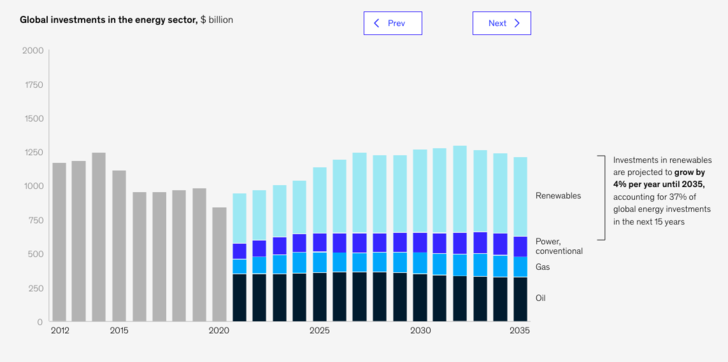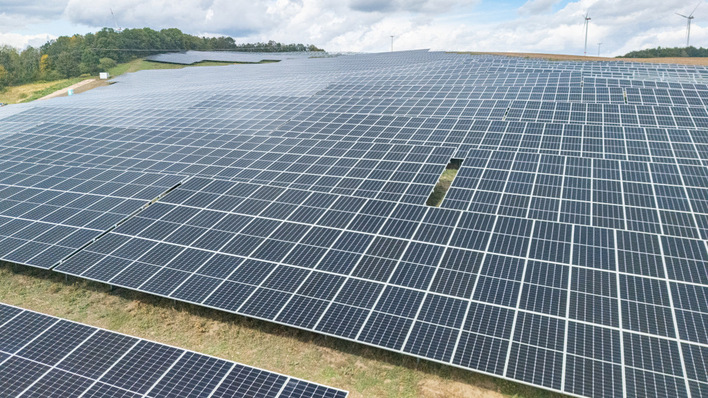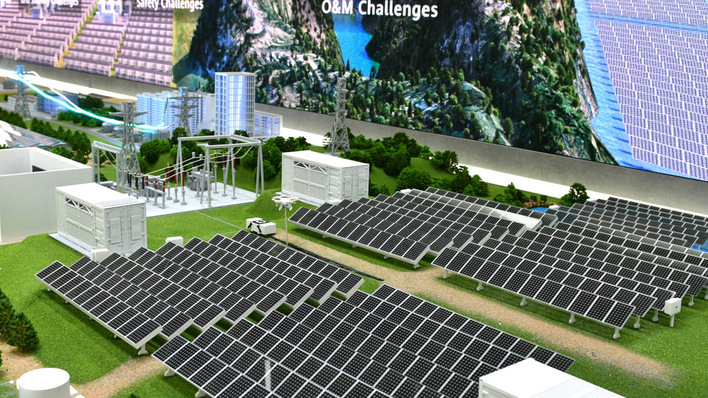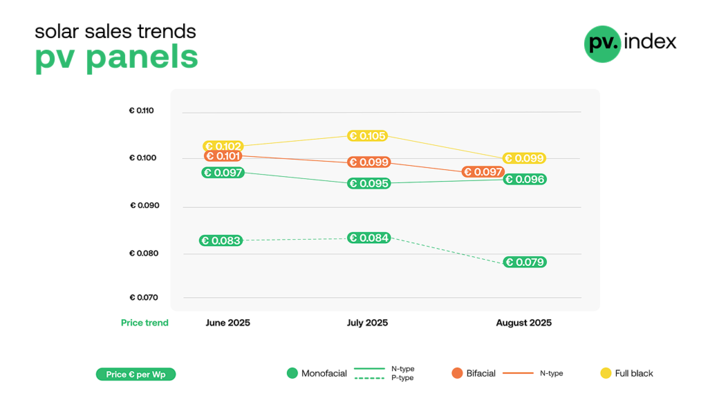In addition to solar power, wind energy has also become one third more cost-effective. Already today, 61 per cent of newly installed renewable capacities are cheaper than the fossil alternatives. And battery costs have also almost halved in the last four years. These are key findings of McKinsey's Global Energy Perspective 2022.
But despite the clear signs that the energy transition is accelerating, the pace is still not sufficient to reach the 1.5 degree target. Even with the current government commitments of the 64 countries covering more than 89 per cent of global emissions, as well as projected technology trends, global warming could likely be between 1.7 to 2.4 degrees Celsius by 2100, depending on the scenario. Electricity demand is projected to triple by 2050 as sectors electrify and the market share of hydrogen and hydrogen-based fuels increases due to decarbonisation.
Demand for gas will continue to rise
According to the analysis, demand for coal has already peaked in 2020, and for oil it will reach its peak around 2025. In contrast, global demand for gas is expected to continue to grow for at least another 10 to 15 years - by around ten per cent. "In the short term, gas is the most resilient fossil fuel as it is the least carbon intensive and is widely used in all sectors. In the longer term, electrification, the use of renewables and the introduction of green hydrogen are the main substitutes for gas," says Alexander Weiss, Head of Energy for the EMEA region.
See also: Average cost of lithium-ion battery cell below $100 kWh in 2023
For this analysis of developments in the global energy market, McKinsey regularly evaluates facts and figures on developments in 55 industry sectors and over 70 energy products and fuels in 146 countries. The calculations were carried out before the outbreak of the war in Ukraine in the period from August 2021 to February 2022. Therefore, they do not currently reflect the impact of the war on global energy markets. (nhp/mfo)
Also interesting: Study finds no negative impacts from floating PV








